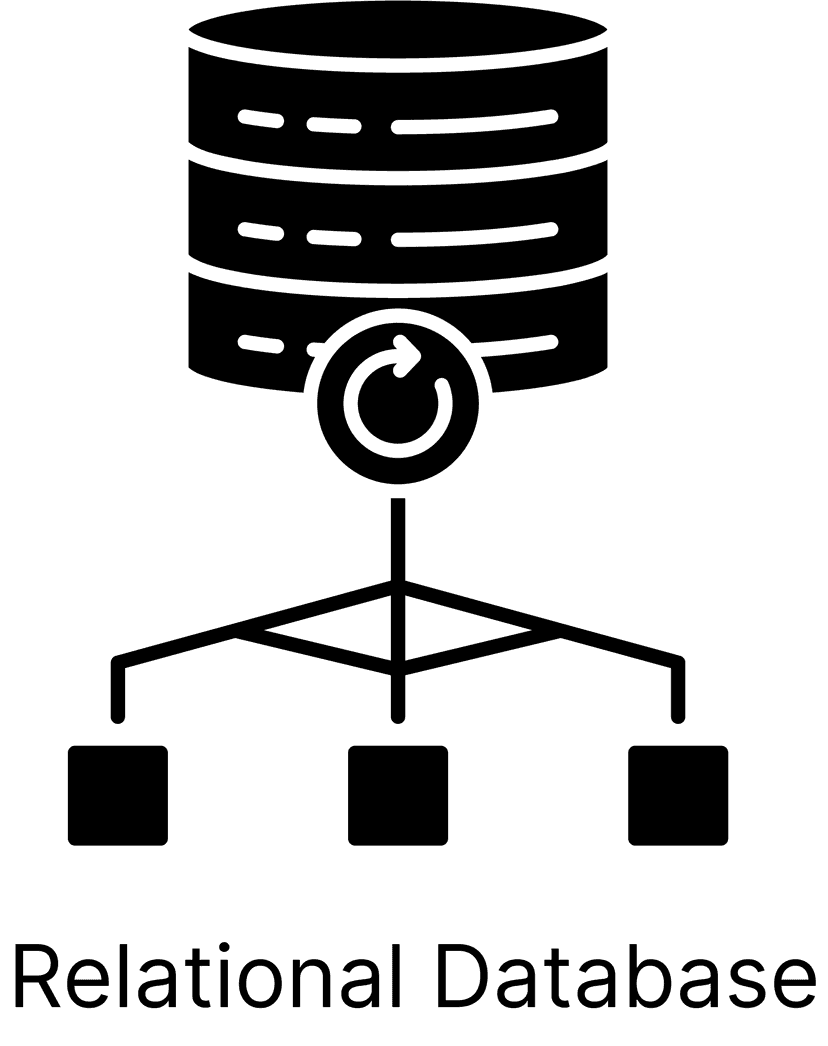Relational Database

What is a relational database?
Definition
A relational database is a type of database that stores and organizes data in tables with rows and columns, allowing users to efficiently access, update, and manage related data through established relationships between these tables.
Analogy
Imagine a library with multiple shelves, each shelf containing a binder. Each binder represents a table, and inside the binders, there are pages with rows and columns. The rows represent individual records, while the columns represent the attributes of those records. Just like how you can easily find information in a library by knowing the location of the binder and the page, you can quickly access data in a relational database by knowing the table and the relationships between different tables.
In other words
A relational database is like a well-organized library of data stored in tables, with relationships between tables making it easy to find and manage information.
Why is a relational database important?
It's one thing to know what a relational database is, but that is worthless if you don't know why you should know what a relational database is in the first place. Let's break down the importance of this tech term based on two high-level categories. We'll walk through an explanation as well as provide a score, 1-10, that shows you how much you should care about relational databases.
Pre-Product: 3/10
If you do not have a product yet, the importance of relational databases might not be as high. At this stage, you may be more focused on ideation and planning. However, understanding the concept of relational databases can help you make informed decisions about your data storage and management strategy once you start developing your product.
Live Product: 7/10
If you have a live product, the importance of relational databases increases significantly. Efficient data storage and management are crucial for a successful product, as it impacts performance, scalability, and maintainability. Understanding relational databases can help you choose the right database solution, optimize data retrieval, and ensure data integrity in your application.
Examples of relational databases
So you know what a relational database is, by definition. You know if you should care about it or not depending on your situation as a business/company/product. To dig in deeper, we will walk through some tools and processes so we can make sure you really have a solid grasp on relational databases.
Popular Relational Database Management Systems (RDBMS)
- MySQL: MySQL is an open-source RDBMS widely used for web applications and online services. It is known for its ease of use, performance, and scalability.
- PostgreSQL: PostgreSQL is another open-source RDBMS known for its advanced features, extensibility, and compliance with SQL standards.
- Microsoft SQL Server: Microsoft SQL Server is a commercial RDBMS designed for enterprise applications, offering a wide range of tools and services for data management and analytics.
- Oracle Database: Oracle Database is a powerful commercial RDBMS used by large organizations for mission-critical applications, known for its performance, reliability, and security features.
Key Takeaways:
- A relational database is a type of database that stores and organizes data in tables with rows and columns, allowing efficient access and management of related data.
- If you do not yet have a product, the importance of relational databases is lower, but understanding the concept can help you make informed decisions about data storage and management.
- If you have a live product, the importance of relational databases increases, as efficient data storage and management are crucial for a successful product.
- Examples of popular relational database management systems include MySQL, PostgreSQL, Microsoft SQL Server, and Oracle Database.

